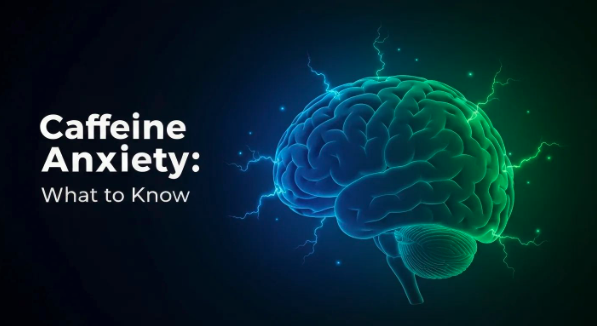Diving into Mental Health Therapy
Explore mental health therapy options to empower your journey toward better emotional well-being and resilience.

Understanding Mental Health Therapy

Overview of Mental Health Therapies
Mental health therapy encompasses a range of treatments designed to help individuals address emotional, psychological, and behavioral issues. Various therapeutic approaches, such as Cognitive Behavioral Therapy (CBT) and Dialectical Behavioral Therapy (DBT), offer unique methods to assist individuals in managing their mental health. CBT focuses on identifying and changing negative thought patterns that lead to self-destructive feelings and actions. It is commonly used for conditions like anxiety and depression [1]. Conversely, DBT emphasizes balancing negative and positive emotions and is particularly beneficial for individuals with multiple mental health issues.
Therapy TypeFocus AreaCognitive Behavioral Therapy (CBT)Negative thought patternsDialectical Behavioral Therapy (DBT)Balancing emotionsGroup TherapySocial interaction and supportIndividual TherapyPersonalized treatment
Understanding these types helps individuals find suitable paths toward improving their mental wellness.
Importance of Seeking Therapy
Seeking therapy is a vital step for many individuals facing mental health challenges. Engaging in therapeutic practices can facilitate personal growth, provide coping strategies, and alleviate symptoms associated with various mental health conditions. Therapy has been shown to be effective in enhancing emotional well-being and improving interpersonal relationships.
According to studies by the National Alliance on Mental Illness (NAMI), individual psychotherapy has proven effective in improving symptoms across a wide array of mental health disorders. Combining therapy with medication is often recommended for a well-rounded approach to treatment [2].
Therapeutic approaches can vary based on individual needs and circumstances, such as cultural background and specific mental health issues. For some, group therapy offers valuable support through shared experiences, while individual therapy allows for tailored interventions in a private setting [3].
Therapy not only addresses existing mental health issues but also empowers individuals by providing tools for personal resilience. This empowerment can enhance overall quality of life and foster a better understanding of oneself. For more insights into mental health and ways to improve it, explore our article on how to improve mental health.
For specific needs, such as caring for mental health as a student or parent, visit our respective articles on how to take care of your mental health as a student and how to take care of your mental health as a parent.

Popular Types of Mental Health Therapies
Mental health therapy encompasses a variety of treatment options, each designed to address specific issues or disorders. Three prominent types of mental health therapies are Cognitive Behavioral Therapy (CBT), Dialectical Behavioral Therapy (DBT), and Trauma Therapy. Below is an overview of each approach.
Cognitive Behavioral Therapy (CBT)
Cognitive Behavioral Therapy (CBT) is a widely used form of treatment that focuses on exploring negative thoughts and beliefs that contribute to self-destructive feelings and actions. It aims to help individuals identify their thought patterns and replace them with more positive and constructive thoughts. CBT has been found to be effective for various mental health disorders, including anxiety and depression.
Key Features of CBTAddresses negative thought patternsFocuses on skill-building and coping mechanismsSuitable for a variety of mental health disordersTypically involves structured sessions
Dialectical Behavioral Therapy (DBT)
Dialectical Behavioral Therapy (DBT) is a specialized form of CBT that emphasizes the importance of balancing negative and positive emotions. This therapy teaches individuals how to accept their feelings while making constructive changes. DBT is particularly beneficial for people dealing with multiple mental illnesses, as it provides skills to manage overwhelming emotions and improve interpersonal relationships [1].
Key Features of DBTCombines cognitive and behavioral techniquesFocuses on emotional regulation and mindfulnessUseful for treating borderline personality disorderInvolves individual and group therapy sessions
Trauma Therapy
Trauma therapy addresses the psychological impact of traumatic experiences such as abuse, natural disasters, or the loss of a loved one. Various approaches fall under this umbrella, including Eye Movement Desensitization and Reprocessing (EMDR) and Trauma-Focused Cognitive Behavioral Therapy (TF-CBT). These therapies aim to help individuals process their trauma, understand its impact on their lives, and support emotional growth.
Key Features of Trauma TherapyFocuses on processing traumatic experiencesUtilizes various modalities (e.g., EMDR)Aims to support emotional healing and resilienceCan be tailored to individual needs
Choosing the right type of therapy is crucial for effective treatment. Individuals are encouraged to seek guidance from licensed professionals to determine the most suitable approach for their mental health needs. Future articles will explore additional therapeutic approaches and the role of medication in mental health treatment. For more information on improving mental health, visit how to improve mental health.

Specialized Therapeutic Approaches
In the realm of mental health therapy, specialized therapeutic approaches cater to various conditions and needs. Three notable methods include Ketamine Assisted Psychotherapy (KAP), Interpersonal Therapy, and Eye Movement Desensitization and Reprocessing Therapy (EMDR).
Ketamine Assisted Psychotherapy (KAP)
Ketamine Assisted Psychotherapy (KAP) is a relatively new therapeutic approach primarily used for individuals experiencing severe depression when conventional treatments have failed. This therapy is administered by trained psychiatrists who supervise the use of ketamine. Initial reports indicate that many patients experience noticeable improvements within a few weeks of treatment.
This method may utilize a combination of ketamine infusions and psychotherapy sessions to enhance treatment efficacy. The unique properties of ketamine may help to lift mood and relieve symptoms of depression, facilitating a more productive therapeutic experience.
AspectDetailsIdeal ForSevere depressionAdministrationAdministered by psychiatristsExpected OutcomeNoticeable improvements within weeks
Interpersonal Therapy
Interpersonal Therapy focuses on improving relationship skills and enhancing personal interactions. This approach is effective for individuals experiencing emotional distress secondary to life events like grief, role changes, or interpersonal conflicts. By emphasizing communication, therapy sessions guide clients through understanding and improving their relationships, which in turn can alleviate mental health issues.
Interpersonal Therapy helps clients recognize patterns in their interactions and develop healthier ways to communicate. This approach is often utilized as part of a comprehensive treatment plan that may also include medication for optimal results.
AspectDetailsIdeal ForEmotional distress related to relationshipsFocusImproving communication and relationshipsExpected OutcomeBetter interpersonal skills, reduced distress
Eye Movement Desensitization and Reprocessing Therapy (EMDR)
EMDR is a specialized therapy primarily used for the treatment of Post-Traumatic Stress Disorder (PTSD). This revolutionary approach involves processing traumatic memories to reduce emotional distress. Studies show that EMDR can effectively reframe negative beliefs and reactions to trauma, replacing them with more neutral or positive responses [2].
During EMDR sessions, clients are guided through bilateral stimulation techniques, which may include eye movements or tapping, while recalling traumatic memories. This method aids in desensitizing individuals to their distressing memories, promoting healing and emotional growth. This technique is beneficial for those who have suffered from traumatic experiences, such as abuse or natural disasters.
AspectDetailsIdeal ForPTSD and trauma-related issuesCore TechniqueBilateral stimulation while recalling memoriesExpected OutcomeReduced emotional distress and processed trauma
Understanding these specialized therapeutic approaches can empower individuals seeking mental health therapy to choose the options that best suit their unique needs. Further exploration of various therapies can help individuals create effective treatment plans tailored to their mental health journeys. For more information on how to improve mental health, consider visiting how to improve mental health.
Medication in Mental Health Treatment
In mental health therapy, medication plays a critical role in managing symptoms, enhancing the effectiveness of psychotherapy, and improving overall well-being. This section will explore three main categories of medications used in mental health treatment: antidepressants, anti-anxiety medications, and antipsychotic medications.
Antidepressants and their Effects
Antidepressants are commonly prescribed medications aimed at treating depression and various anxiety disorders. They typically take 4-8 weeks to become effective and involve several types, including selective serotonin reuptake inhibitors (SSRIs) and serotonin and norepinephrine reuptake inhibitors (SNRIs). These newer antidepressants tend to have fewer side effects compared to older medications, such as tricyclics and monoamine oxidase inhibitors (MAOIs) [4].
While beneficial, it is essential to note that individuals under 25 years old, including children and teenagers, may experience an increase in suicidal thoughts or behaviors, particularly during the initial weeks of treatment or when dosages change.
Antidepressant TypeExample MedicationsCommon Side EffectsSSRIsFluoxetine, SertralineNausea, Insomnia, Weight GainSNRIsVenlafaxine, DuloxetineDizziness, Dry Mouth
Anti-Anxiety Medications
Anti-anxiety medications are crucial for managing acute anxiety symptoms and are particularly effective for conditions like generalized anxiety disorder. Benzodiazepines are a prevalent type of anti-anxiety medication, often prescribed for short-term relief. Long-term use can lead to drug tolerance or dependence; thus, healthcare providers typically recommend them for brief periods and tapering the dosage slowly [5].
Other medications, such as beta-blockers, may also be prescribed off-label to help control the physical symptoms of anxiety, such as rapid heart rate and sweating, even though these are not officially approved for anxiety treatment [5].
Anti-Anxiety Medication TypeExample MedicationsCommon Side EffectsBenzodiazepinesDiazepam, LorazepamDrowsiness, Memory ImpairmentBeta-BlockersPropranololFatigue, Cold Extremities
Antipsychotic Medications
Antipsychotic medications are primarily utilized in treating psychotic conditions, such as schizophrenia and bipolar disorder. They may also be prescribed alongside other medications for severe depression. Newer medications known as atypical antipsychotics are widely used today due to their ability to address a broader range of symptoms compared to older antipsychotics [6].
Antipsychotic Medication TypeExample MedicationsCommon Side EffectsAtypical AntipsychoticsRisperidone, QuetiapineWeight Gain, FatigueOlder AntipsychoticsHaloperidolMovement Disorders, Sedation
Medication is a vital component of mental health therapy, contributing significantly to symptom management and overall effectiveness. It's essential for individuals to work closely with healthcare providers to determine the most suitable medications and monitor their effectiveness throughout treatment. For more insights on mental wellness, explore our articles on how to improve mental health and mental health screening.
Factors Influencing Mental Health Therapy
Understanding the various factors that influence mental health therapy is essential for both professionals and clients. These factors can shape the effectiveness of therapy and determine how individuals perceive and engage with mental health services.
Cultural Considerations
Cultural factors play a significant role in how individuals experience mental health and seek therapy. Different cultures have varying beliefs about health, illness, and coping mechanisms which can impact treatment-seeking behaviors. Hechanova and Waeldle identified five key components of diverse cultures that affect mental health professionals: emotional expression, shame, power distance, collectivism, and spirituality and religion [7].
Stigma surrounding mental health issues can act as a barrier for individuals from diverse backgrounds, leading to delays in seeking treatment. The perceptions of disease causality and the reliance on traditional healing practices may also influence whether individuals choose to engage with mental health professionals. Initiatives aimed at improving multicultural counseling can help bridge these gaps by increasing the availability and quality of mental health services.
Therapeutic Approaches: Group vs. Individual
Therapy can be conducted in various formats, with the primary options being group therapy or individual therapy. Each approach has its distinct advantages and can lead to different outcomes.
ApproachAdvantagesIndividual TherapyTailored personal attention, deeper exploration of personal issuesGroup TherapySense of community, shared experiences, reduced feelings of isolation
Individual therapy allows for personalized treatment, addressing specific needs and circumstances. Clients may find it easier to discuss sensitive issues in a one-on-one setting. Conversely, group therapy can provide a sense of belonging and support, as participants learn from each other's experiences.
Both formats have their place in mental health therapy. The choice between group and individual therapy often depends on personal preference, the nature of the concerns being addressed, and the therapeutic goals.
Systematic Treatment Selection (STS)
Systematic Treatment Selection (STS) is a framework that aids mental health professionals in choosing the most effective therapeutic approach for their clients. STS considers various factors including client characteristics, treatment history, and specific therapeutic needs. This method emphasizes evidence-based practices to ensure that clients receive appropriate and effective care.
Some key elements considered in STS include:
FactorDescriptionClient NeedsIndividual preferences and goals for therapyEvidence-Based PracticesApproaches supported by research and clinical outcomesTreatment ReadinessClient's willingness and preparedness to engage in therapy
Utilizing STS helps to create a more structured and effective therapeutic process, ensuring that therapy aligns with individual client needs and fosters meaningful progress. By integrating this systematic approach, mental health providers can optimize treatment outcomes and enhance the therapeutic experience. For further insights on maintaining well-being, explore our article on how to improve mental health.
Role of Medication in Mental Health
Medication plays a significant role in the landscape of mental health treatment. It can substantially improve an individual's quality of life when paired effectively with therapeutic approaches. Below are key insights into the importance of medication, common misconceptions, and the duration for which it is typically required.
Importance of Medication
Medication can be crucial for stabilizing mood, enhancing daily functioning, and supporting self-care in individuals facing mental health difficulties. It aids in establishing and maintaining healthy routines related to sleep, nutrition, and exercise. By integrating medication with psychotherapy and holistic care, individuals can reinforce their capacity to adhere to positive lifestyle adjustments, ultimately promoting overall well-being. This approach acknowledges the multifaceted nature of mental health and caters to it effectively [9].
Benefit of MedicationDescriptionMood StabilizationHelps regulate emotional fluctuations, providing a sense of control.Improved FunctionalityEnhances daily activities, making it easier to manage responsibilities.Support for Lifestyle ChangesFacilitates healthier lifestyle habits, reducing barriers to change.
Misconceptions about Medication
Despite its benefits, several misconceptions about medication persist. Some individuals avoid medication due to fears about potential personality changes. However, it is important to clarify that medication does not alter one's core identity; rather, it helps regulate moods and behaviors, leading to a state where individuals feel more balanced and in control. This can greatly assist them in coping more effectively with life's challenges.
Common MisconceptionTruthMedication will change who I amMedication regulates mood, helping you feel more yourself.All psychiatric issues require medicationNot all challenges need medication; therapy might suffice for some.Medications are always addictiveMost mental health medications are not addictive when used properly.
Duration of Medication Therapy
The duration for which medication therapy is necessary can vary significantly among individuals. For some, medication might be a short-term solution needed during acute episodes of mental health challenges, while others may require longer-term management to maintain stability. Seeking professional support and continuously assessing the effectiveness of the treatment plan are crucial in deciding the appropriate duration for medication. The contemporary approach of Systematic Treatment Selection (STS) offers guidance for clinicians, helping to tailor treatment based on individual needs [10].
Duration ConsiderationsDescriptionShort-TermMay be used during crisis situations or acute mental health episodes.Long-TermOften necessary for chronic conditions requiring ongoing management.Regular AssessmentContinuous evaluation of medication effectiveness and adjustment as needed.
Understanding the role of medication in mental health therapy is essential for making informed choices. Seeking support through therapy and considering medication's potential can help individuals manage their mental health challenges effectively. For those looking into improving their mental well-being, more information can be found in our guide on how to improve mental health.
References
[2]:
[3]:
[4]:
[5]:
[6]:
[7]:
[8]:
[9]:
[10]:
More Resources
A team ready to start your journey.
Get in touch — today.
We are a safe space – a haven for exceptional individuals to receive discreet, personalized, in-person treatment and care.
.avif)



.webp)






